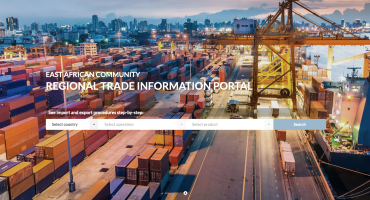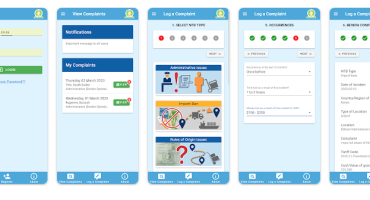

The East African Community (EAC) is dedicated to enhancing economic efficiency and fostering regional integration through strategic investments and the utilization of established industries. The goal is to position the Community as a single investment area, harmonizing trade policies, investment incentives, and product standards.
EAC Partner States prioritize regional trade integration as a cornerstone of their trade policies. This involves strengthening both public institutions and private sector organizations engaged in export promotion, creating a conducive environment for cross-border trade.
Key Measures to Enhance Trade:
Customs Union Protocol (Effective January 2005)
Signed in March 2004, the Customs Union Protocol aims to liberalize intra-regional trade, promote production efficiency, attract investment, and encourage economic development and industrial diversification.
Common Market Protocol (Effective July 2010)
EAC Partner States signed the Common Market Protocol in November 2009, transforming the region into the first single market in Africa. It allows for the free movement of goods, persons, services, labor, and capital while ensuring rights to residence and establishment.
Trade and Investment Framework Agreements (2011)
Framework agreements with the USA and China were signed in 2011, promoting commodity trade, exchange visits by business people, and cooperation in investment.
Trade Facilitation
Partner States collaborate to simplify, standardize, and harmonize trade information and documentation to facilitate the seamless flow of goods.
Anti-Dumping Measures
The Community has established anti-dumping regulations, in accordance with the Customs Union Protocol, to address unfair trade practices.
Competition Policy and Law
The EAC has implemented a Competition Policy and Law to discourage practices that negatively impact free trade within the Community.
Re-Export of Goods
Re-exports are exempted from the payment of import or export duties, promoting the movement of goods within the region.
Removal of Non-Tariff Barriers
Under Article 13 of the Customs Union Protocol, Partner States commit to removing existing non-tariff barriers and refraining from imposing new ones.
Standards and Measures
Recognizing the importance of standardization and quality assurance, the EAC Partner States have emphasized the role of standards, metrology, and testing in promoting trade, investment, and consumer protection.
The EAC's commitment to regional integration and trade facilitation is evident through a comprehensive framework that addresses not only tariff-related matters but also non-tariff barriers, competition issues, and standards. Ongoing reviews and collaborations with international partners further signify the Community's dedication to creating a vibrant and seamless economic environment for its member states.

The EAC Trade Information Portal (TIP) gives access to step-by-step guides on licenses, pre-clearance permits and clearance formalities for the most traded goods within, to and from the East African Community EAC).

The ultimate tool for identifying, removing, and monitoring Non-Tariff Barriers (NTBs) to trade within the Tripartite Community. The App prioritizes policy harmonization and coordination, aiming to eliminate obstacles that hinder intra/inter-regional trade, thus reducing the high cost of doing business in the region.
The African Continental Free Trade Area, (AfCFTA) was established in 2018 as one of the flagship projects of the African Union Agenda 2063 with the main mandate to create a single continental market of 55 Member States of the African Union.
The Tripartite is an umbrella organisation consisting of 3 of Africa’s Regional Economic Communities, namely: the Common Market for Eastern and Southern Africa; the East Africa Community and the Southern African Development Community. The Tripartite consists of 26 member countries.